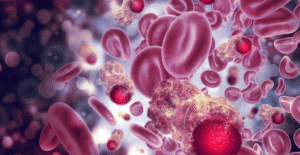Bariatric surgery is a powerful tool in the fight against obesity, but the real success begins after the operating room. Whether you’ve undergone a gastric sleeve surgery, gastric bypass surgery, or another minimally invasive bariatric surgery, your long-term results depend largely on one crucial factor: nutrition.
At our clinic, we’ve seen countless bariatric surgery success stories—and they all have one thing in common: commitment to a healthy lifestyle and proper bariatric nutrition.
Why Nutrition Matters After Weight Loss Surgery
After weight loss surgery, your stomach is significantly smaller, and your body absorbs nutrients differently. That means:
- You’ll feel full faster.
- You’ll eat less.
- But your body still needs essential nutrients to function.
This makes your post-surgery diet not just important—but essential—for healing, energy, and lasting results.
Phases of the Post-Surgery Diet
1. Liquid Diet (First few days)
This gives your stomach time to heal. It includes broths, sugar-free drinks, and protein shakes.
2. Pureed Foods (1–2 weeks post-op)
You’ll transition to soft, blended foods packed with nutrients.
3. Soft Foods (3–4 weeks post-op)
Think scrambled eggs, mashed veggies, and tender meats.
4. Solid Foods (After 1 month)
With guidance, you’ll gradually introduce solid meals that meet your nutritional needs.
Each phase is designed to protect your body while helping you adapt to new eating habits.
Bariatric Nutrition Must-Haves
Following bariatric surgery, your body needs:
- Protein: Essential for muscle repair and keeping you full.
- Vitamins and minerals: Especially B12, iron, calcium, and vitamin D.
- Hydration: Sip water consistently throughout the day—dehydration is common!
We recommend working with a bariatric nutritionist who specializes in lifestyle changes after bariatric surgery to ensure you’re on track.
Tips to Maintain Long-Term Weight Loss
Surgery is just the beginning. Here are a few key weight loss tips after bariatric surgery:
- Eat mindfully: Slow down, chew well, and listen to your body.
- Avoid empty calories: Sugary snacks and drinks can sabotage progress.
- Exercise regularly: Movement boosts energy and maintains muscle mass.
- Stay consistent: Success comes from sustainable habits, not quick fixes.
Risks of Bariatric Surgery Without Proper Nutrition
Neglecting nutrition can lead to serious complications such as:
- Nutritional deficiencies
- Fatigue or muscle loss
- Hair thinning or brittle nails
- Regaining weight over time
This is why bariatric surgery recovery isn’t complete without a strong nutrition plan.
Is Bariatric Surgery Right for You?
The best candidates for bariatric surgery are individuals struggling with obesity who have not found success through traditional methods like diet and exercise. It’s important to weigh the benefits of bariatric surgery against the risks of bariatric surgery, and that includes understanding the ongoing commitment to your health.
What About the Cost?
The bariatric surgery cost varies by procedure and location. However, many patients find that the improvement in quality of life, health, and energy is well worth the investment.
Transform Your Health with the Right Support
At our clinic, we provide more than just surgery—we guide you every step of the way. From expert surgeons to specialized nutritionists, we’re here to support your transformation.
Are you ready to rewrite your story? Let’s do it together.




